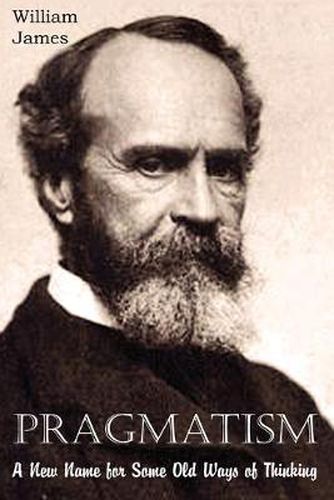Readings Newsletter
Become a Readings Member to make your shopping experience even easier.
Sign in or sign up for free!
You’re not far away from qualifying for FREE standard shipping within Australia
You’ve qualified for FREE standard shipping within Australia
The cart is loading…






This title is printed to order. This book may have been self-published. If so, we cannot guarantee the quality of the content. In the main most books will have gone through the editing process however some may not. We therefore suggest that you be aware of this before ordering this book. If in doubt check either the author or publisher’s details as we are unable to accept any returns unless they are faulty. Please contact us if you have any questions.
The lectures that follow were delivered at the Lowell Institute in Boston and at Columbia University, in New York. They are printed as delivered, without developments or notes. The pragmatic movement, so-called-I do not like the name, but apparently it is too late to change it- seems to have rather suddenly precipitated itself out of the air. A number of tendencies that have always existed in philosophy have all at once become conscious of themselves collectively, and of their combined mission; and this has occurred in so many countries, and from so many different points of view, that much unconcerted statement has resulted. I have sought to unify the picture as it presents itself to my own eyes, dealing in broad strokes, and avoiding minute controversy. Much futile controversy might have been avoided, I believe, if our critics had been willing to wait until we got our message fairly out. William James was a pioneering American psychologist and philosopher trained as a medical doctor. He wrote influential books on psychology, educational psychology, psychology of religious experience and mysticism, and the philosophy of pragmatism. He gained widespread recognition with his monumental Principles of Psychology, totaling twelve hundred pages in two volumes, which took twelve years to complete.
$9.00 standard shipping within Australia
FREE standard shipping within Australia for orders over $100.00
Express & International shipping calculated at checkout
This title is printed to order. This book may have been self-published. If so, we cannot guarantee the quality of the content. In the main most books will have gone through the editing process however some may not. We therefore suggest that you be aware of this before ordering this book. If in doubt check either the author or publisher’s details as we are unable to accept any returns unless they are faulty. Please contact us if you have any questions.
The lectures that follow were delivered at the Lowell Institute in Boston and at Columbia University, in New York. They are printed as delivered, without developments or notes. The pragmatic movement, so-called-I do not like the name, but apparently it is too late to change it- seems to have rather suddenly precipitated itself out of the air. A number of tendencies that have always existed in philosophy have all at once become conscious of themselves collectively, and of their combined mission; and this has occurred in so many countries, and from so many different points of view, that much unconcerted statement has resulted. I have sought to unify the picture as it presents itself to my own eyes, dealing in broad strokes, and avoiding minute controversy. Much futile controversy might have been avoided, I believe, if our critics had been willing to wait until we got our message fairly out. William James was a pioneering American psychologist and philosopher trained as a medical doctor. He wrote influential books on psychology, educational psychology, psychology of religious experience and mysticism, and the philosophy of pragmatism. He gained widespread recognition with his monumental Principles of Psychology, totaling twelve hundred pages in two volumes, which took twelve years to complete.